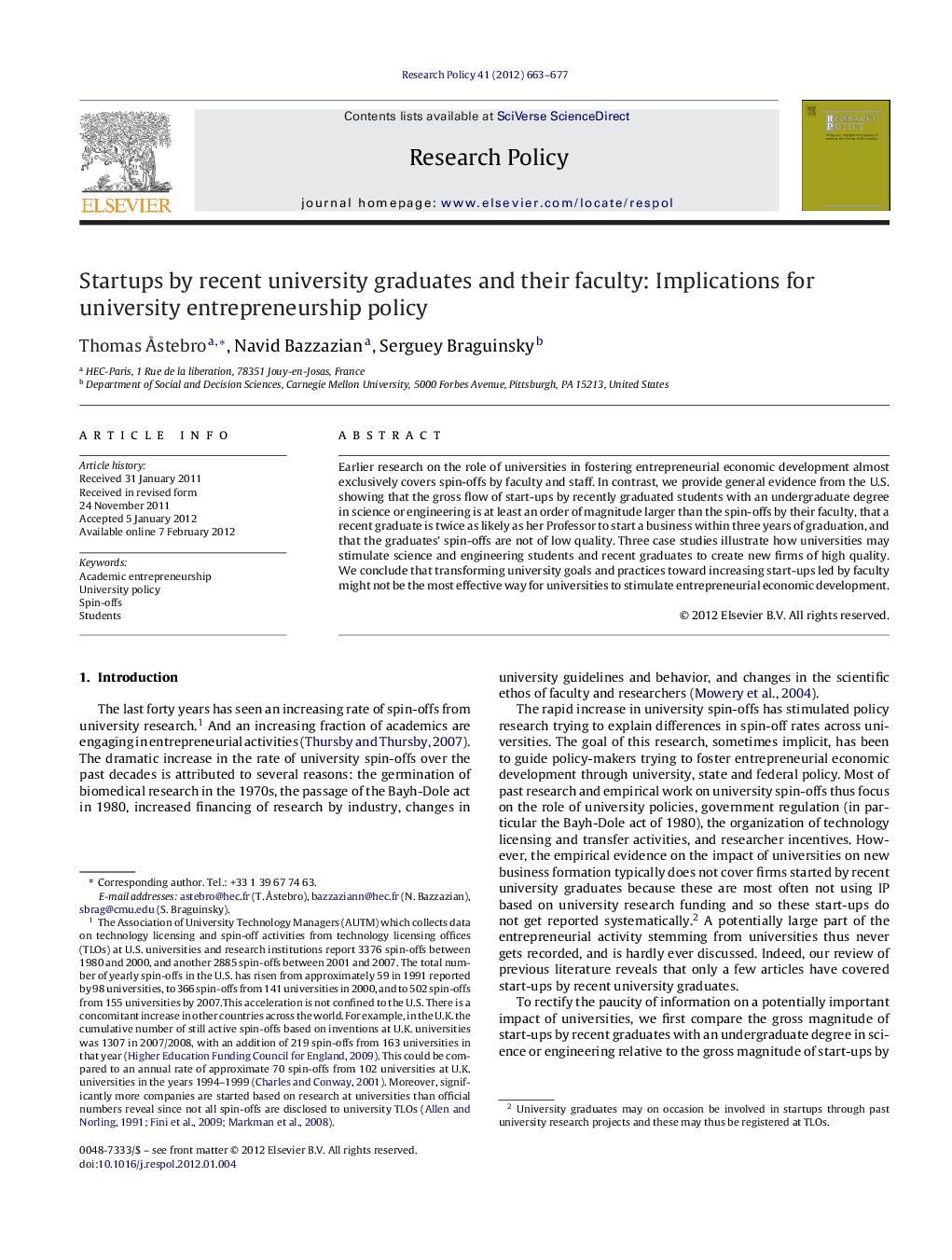| Article ID | Journal | Published Year | Pages | File Type |
|---|---|---|---|---|
| 984040 | Research Policy | 2012 | 15 Pages |
Earlier research on the role of universities in fostering entrepreneurial economic development almost exclusively covers spin-offs by faculty and staff. In contrast, we provide general evidence from the U.S. showing that the gross flow of start-ups by recently graduated students with an undergraduate degree in science or engineering is at least an order of magnitude larger than the spin-offs by their faculty, that a recent graduate is twice as likely as her Professor to start a business within three years of graduation, and that the graduates’ spin-offs are not of low quality. Three case studies illustrate how universities may stimulate science and engineering students and recent graduates to create new firms of high quality. We conclude that transforming university goals and practices toward increasing start-ups led by faculty might not be the most effective way for universities to stimulate entrepreneurial economic development.
► General evidence and case study data on university graduates’ and faculty start-up activity presented. ► Former appear an order of magnitude larger than latter. ► Transforming universities to increase faculty spin-offs might thus not be the most effective way to stimulate entrepreneurship.
